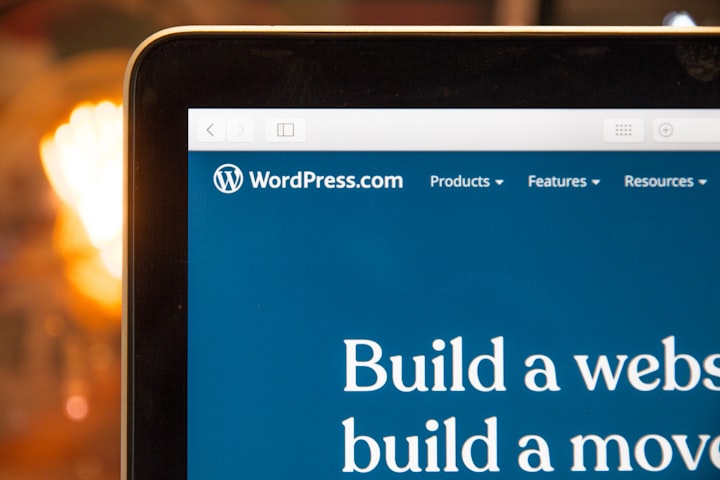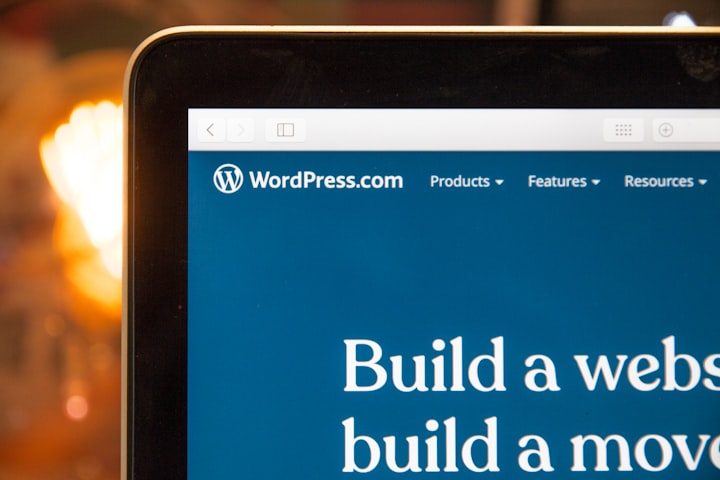Top 10 CMS Platforms Spotted by WhatRuns in 2024
Discover the top 10 CMS platforms powering websites in 2024, including WordPress, Shopify, and Wix. Learn their key features, why they dominate, and trends shaping the CMS landscape.

Content Management Systems (CMS) are the backbone of modern websites, helping users create and manage content with ease. Whether you’re a blogger, business owner, or designer, a CMS simplifies the technical side of running a website, letting you focus on your goals.
Using insights from WhatRuns, a technology detection tool, we’ve analyzed the top CMS platforms of 2024. These platforms lead the way due to their features, adaptability, and ability to meet the diverse needs of users. Below, we’ll explore these CMS platforms in detail, highlighting why they dominate and what makes them stand out this year.
1. WordPress
WordPress is the most popular CMS worldwide, powering over 40% of all websites. It serves everyone, from personal bloggers to global enterprises, thanks to its flexibility and user-friendly nature.
- Key Features:
- Intuitive interface suitable for beginners and professionals.
- Over 60,000 plugins and thousands of themes for customization.
- Seamless integration with SEO plugins like Yoast for search optimization.
- Scalability for projects of any size, from small blogs to e-commerce giants.
- Why It Leads:
WordPress dominates because of its adaptability. Its open-source community constantly improves the platform, keeping it relevant. In 2024, WordPress is doubling down on features like the block-based Gutenberg editor and headless CMS options, giving developers even more creative freedom.
“WordPress combines ease of use with unmatched versatility, making it a one-size-fits-all solution for web creators.”
2. Shopify
Shopify is the e-commerce king, used by more than 4.5 million websites. It allows businesses to launch and manage online stores without any technical hassle.
- Key Features:
- All-in-one platform for hosting, payments, and inventory management.
- Built-in tools for multi-channel sales, including social media and marketplaces.
- A robust app ecosystem to add features like customer support or analytics.
- Mobile-responsive templates that ensure an optimal shopping experience.
- Why It Leads:
Shopify’s simplicity and reliability make it the top choice for online businesses. In 2024, AI-powered tools for inventory optimization and personalized shopping experiences give businesses an edge in competitive markets.
3. Wix
Wix is a favorite for those new to website building. Its drag-and-drop functionality allows users to create professional-looking sites without writing a single line of code.
- Key Features:
- Easy-to-use drag-and-drop editor.
- Artificial Intelligence (Wix ADI) that builds websites in minutes.
- App marketplace for additional features like booking systems or social media feeds.
- Built-in SEO tools and guidance to improve search visibility.
- Why It Leads:
Wix combines simplicity with creative control, making it ideal for small businesses, freelancers, and personal projects. Its updates in 2024 focus on AI-driven customization and ensuring sites look great across all devices.
“Wix empowers beginners with tools that are simple yet effective, transforming ideas into beautiful websites.”
4. Squarespace
Squarespace is known for its sleek, professional designs. It’s popular among creatives like photographers, designers, and small business owners who value aesthetics.
- Key Features:
- Award-winning templates tailored for visual storytelling.
- Integrated e-commerce tools for selling products and services.
- All-in-one hosting, making setup quick and easy.
- Marketing tools like email campaigns and analytics built into the platform.
- Why It Leads:
Squarespace stands out for its focus on design. In 2024, it adds more customization options, including video backgrounds and animations, making it easier for users to create dynamic, engaging websites.
5. Drupal
Drupal is a powerhouse CMS for developers and enterprises that need advanced functionality and customization. It’s often used by large-scale websites like government portals or educational institutions.
- Key Features:
- Modular architecture for building custom functionality.
- Enterprise-grade security features.
- Built-in multilingual support for global websites.
- Extensive library of free modules contributed by a vibrant developer community.
- Why It Leads:
Drupal excels at managing complex websites. It supports API-first architecture and headless CMS capabilities, which are essential for enterprises in 2024. While it has a steeper learning curve, its power and flexibility make it worth the effort.
“For developers and organizations with big ideas, Drupal provides the tools to build without limits.”
6. Magento (Adobe Commerce)
Magento, now Adobe Commerce, is the preferred CMS for large e-commerce stores. It excels in managing high-volume transactions and large product catalogs.
- Key Features:
- Advanced e-commerce tools like multi-store management and inventory tracking.
- Flexible customization for unique business needs.
- AI-powered features for personalized shopping experiences.
- Support for multiple currencies and languages.
- Why It Leads:
Magento handles the complexities of enterprise-level e-commerce. In 2024, its integration with Adobe’s marketing suite makes it a top choice for businesses wanting detailed customer insights.
7. Joomla!
Joomla! offers more advanced features than beginner-friendly CMS platforms but remains less complex than developer-centric options. It’s versatile and works well for medium-sized websites.
- Key Features:
- Advanced user access management.
- Built-in multilingual support.
- Thousands of extensions for customization.
- Strong SEO tools to improve search rankings.
- Why It Leads:
Joomla! attracts users who want flexibility without complexity. Updates in 2024 improve the user interface and API integrations, keeping it competitive in the market.
8. Ghost
Ghost is designed for content creators, bloggers, and publishers who value simplicity and speed.
- Key Features:
- Lightweight and fast, optimized for performance.
- Clean, distraction-free writing interface using Markdown.
- Built-in membership and subscription features.
- SEO tools that require minimal setup.
- Why It Leads:
Ghost’s minimalist design appeals to content creators who want to focus on publishing. Its fast performance and integration options ensure it stays relevant in 2024.
“Ghost simplifies the process of publishing content, letting creators focus on what matters most: their audience.”
9. HubSpot CMS
HubSpot CMS blends website management with customer relationship management (CRM) and marketing tools, making it ideal for businesses focused on lead generation.
- Key Features:
- Built-in CRM and analytics tools for tracking visitor behavior.
- Drag-and-drop page editor for non-technical users.
- Smart content personalization for tailored user experiences.
- Real-time SEO recommendations for better search rankings.
- Why It Leads:
HubSpot CMS is an all-in-one solution for marketing-focused websites. In 2024, its AI-powered marketing tools improve customer engagement and campaign performance.
10. Webflow
Webflow combines a CMS with advanced web design tools, allowing designers to create fully customizable websites.
- Key Features:
- Drag-and-drop editor with pixel-perfect precision.
- Built-in hosting with a global CDN for fast loading.
- Dynamic content options for creating rich, data-driven websites.
- E-commerce support for small and medium-sized stores.
- Why It Leads:
Webflow bridges the gap between design and development. Its no-code tools and improved collaboration features in 2024 make it a popular choice for creative teams and agencies.
Trends in CMS Technology for 2024
- Headless CMS Adoption: Platforms like WordPress and Drupal enable headless functionality, separating content management from front-end design. This improves site speed and flexibility.
- AI Integration: CMS platforms incorporate AI for tasks like SEO optimization, content creation, and user personalization.
- No-Code Tools: Platforms like Wix and Webflow make website creation accessible to everyone, reducing reliance on developers.
- Performance Optimization: Lightweight CMS platforms like Ghost and global CDN integrations ensure faster load times and better user experiences.
Conclusion
In 2024, CMS platforms continue to evolve, catering to a wide range of needs. Whether you are creating a blog, building an e-commerce store, or running a large enterprise website, there’s a CMS designed for you. Tools like WhatRuns help users understand the technologies powering websites, making it easier to choose the right CMS. Select a platform that aligns with your goals, and you’ll have the foundation to succeed online.


